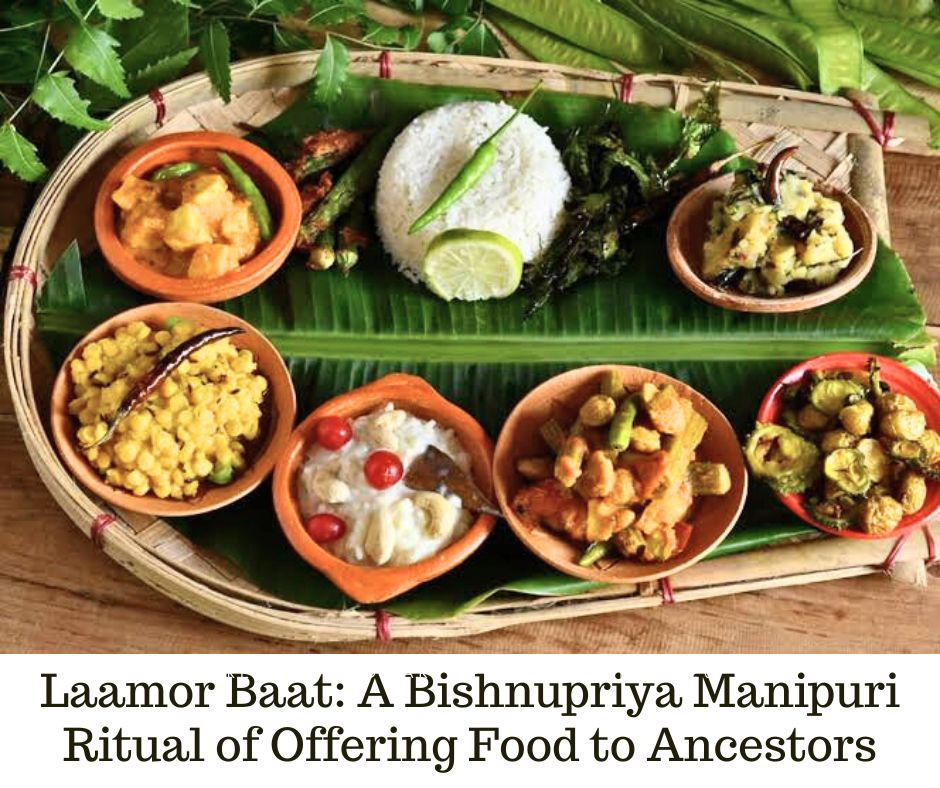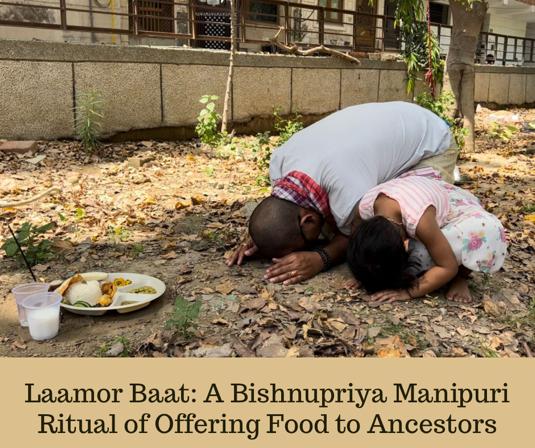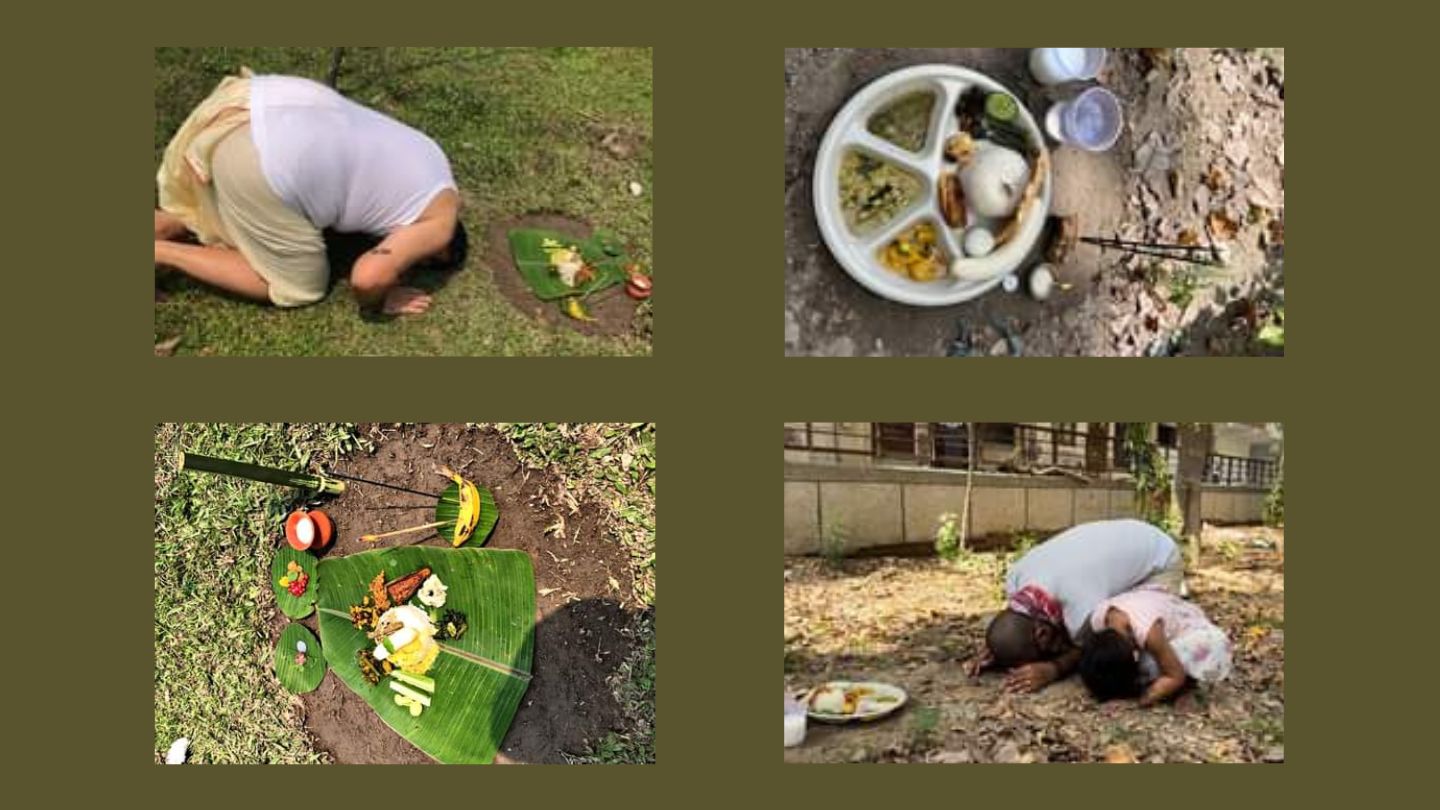
'Laamor Baat' is an offering of food to the ancestors and departed souls, seeking their blessings - celebrated this day, every year. This is a ritual followed by the Bishnupriya Manipuri community. A variety of vegetarian delicacies are prepared. I remember my Maa preparing at least 21 delicacies that contained 108 types of ingredients in the complete preparation (vegetables/pulses/herbs, etc.). Laamor Baat is usually offered at an open place. The head/son of the family first offers the puja with offering followed by obeisance by the other family members.

‘Laamor Baat’ is different from Shraddh (during which, we Hindus in general, offer homage to ancestors in Haridwar and other holy places). We, Bishnupriya Manipuris, also offer homage to our ancestors in the morning of Mahalaya (the first day of Durga Puja that falls in October-November). It is done either at home in an open place where Ganga Jal is offered with flowers with the accompaniment of chanting of mantras, lighting of diyas, burning of incense. The gotra of the person is mentioned by the chanter (generally a Purohit) and gradually the departed souls dating back to generations, are invoked and their blessings are sought. Raw rice, pulses, spices, vegetables, etc., which is termed ‘Sidda’ are offered in the local temple in the name of the ancestors. These are used in the preparation/cooking of 'bhog', which are then offered to the deities of the temple. We consume the bhog and the delicacies prepared as ‘prasad’. Many come to Haridwar, and our other holy river side to do the same.

Besides the two aforementioned rituals dedicated to our ancestors, we, Bishnupriya Manipuris, also offer homage to ‘Aapokpa’, our Kuldevta. Aapokpa is our ancestor - 6th generation from Babruvahana, the son of Pandava prince Arjun and Manipuri princess Chitrangada. This genealogy finds description in the ‘Khumal Purana’. Prayers are offered at the place where the in-house granary (in village) or where anna (rice grains) is stored (in towns and cities where there is no granary) with fruits at the same time lighting diya and incense. This is done indoors. When we offer prayers to our ancestors during Shraddh or during a marriage ceremony at home, which is a must, for seeking blessings, the 1st offering is done to Aapokpa.
In the attached pictures are my behnoi offering Laamor Baat in an open field (Assam) and my brother, niece offering it under a tree (Delhi).
Beauty of Sanatana Dharma; a traditional ritual followed since millennia.
 Manoshi Sinha is a Dharmic nationalist and a Best-selling author of the Series Safford Swords. She is also founder of My India My Glory.
Manoshi Sinha is a Dharmic nationalist and a Best-selling author of the Series Safford Swords. She is also founder of My India My Glory.
NEXT ARTICLE